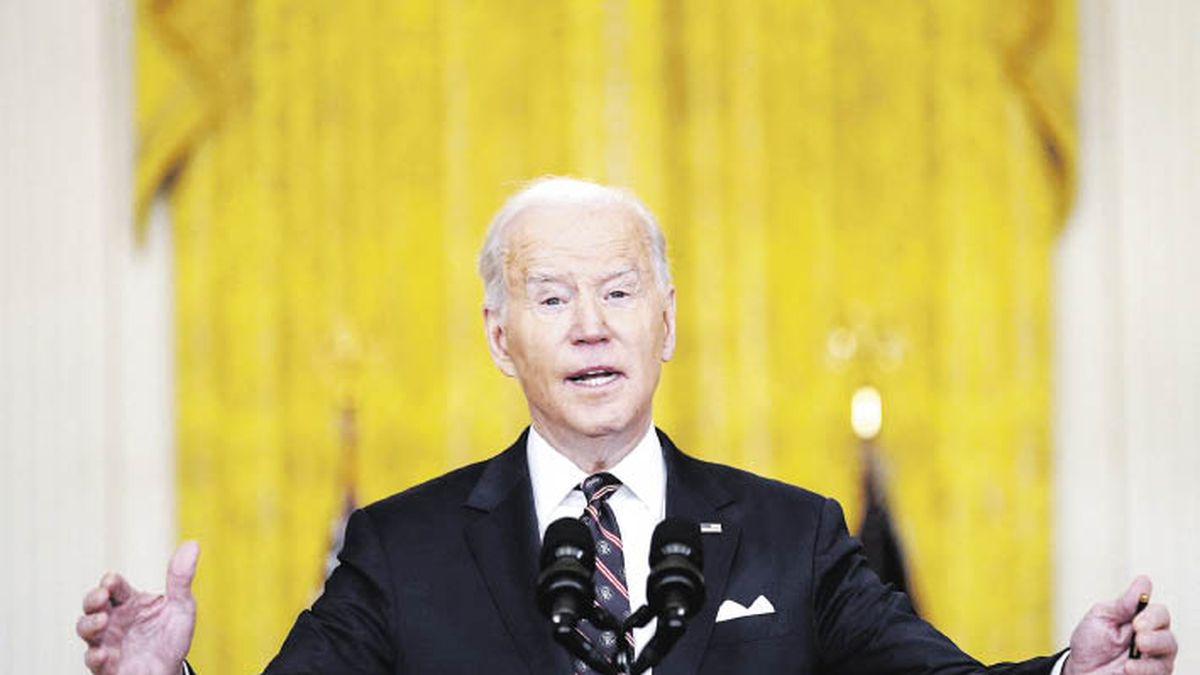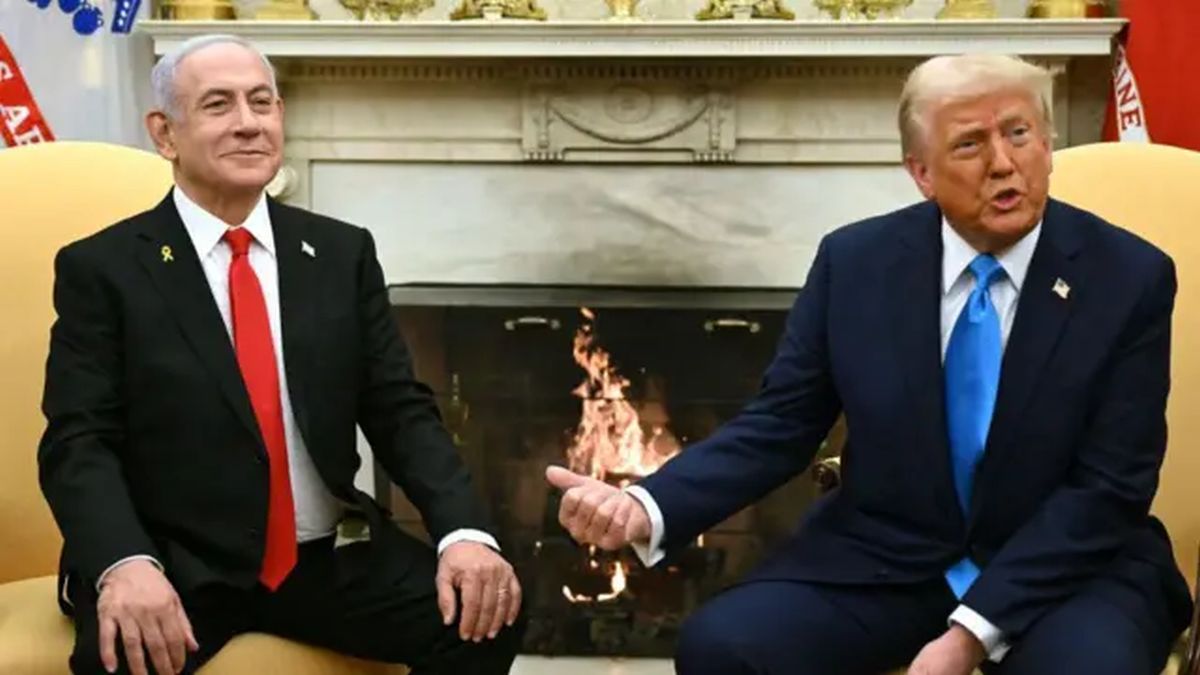“If Russia goes further with this invasion, we will go further with sanctions,” added the Democratic leader, reading a statement from the White House, without accepting questions from journalists.
In his message, Biden announced “the first tranches” of sanctions against two large Russian financial institutions, sovereign debt, the country’s elites and their families, but also announced that Washington will provide greater military support to Kiev and strengthen its allies. of the Baltic.
“We have no intention of fighting Russia. However, we want to send an unequivocal message: that the United States, together with our allies, will defend every inch of NATO territory,” stressed the president, who described Moscow’s demands regarding the crisis in the former nation as “extreme.” soviet
Although Biden reiterated that Moscow has more than 150,000 soldiers on the border with Ukraine and that he believes that it will try to “advance with a massive attack”, he was open to resolving the conflict through diplomatic channels and thus avoiding the “worst case scenario”. .
Then a senior White House official assured in a press conference that “no Russian financial institution is safe. If this invasion continues, we are ready to push a button to take further action against Russia’s largest financial institutions, including Sberbank and VTB, which together hold almost $750 billion in assets or more than half of the total in Russia in as a whole,” the official said.
The United States has targeted Russian banks Vnesheconombank (VEB) and Promsvyazbank Public Joint Stock Company (PSB), as well as 42 of their subsidiaries, the Treasury Department confirmed in a statement on Tuesday.
The US president’s announcement comes amid an escalation in the crisis in eastern Ukraine, where a Ukrainian soldier was killed and six others wounded in Russian-speaking separatist bombings on Tuesday, the Ukrainian military said.
Putin recognized the independence of the two separatist regions on Monday and hours later ordered the entry of Russian troops into those territories as part of a “peacekeeping mission.”
This decision was authorized yesterday by the Russian Senate and further triggered the very high tensions with the West, which since the end of last year has feared an invasion of Ukraine due to the high presence of Russian troops on the border with that European country.
The Kremlin, for its part, repeatedly rejected these accusations, denounced hostile NATO activities near its territory and demanded guarantees so that it does not continue to expand towards its borders.
Some demands reiterated yesterday by the Russian president, who considered that the best decision that the Government of Kiev can take to resolve the crisis is to renounce its will to join the Atlantic Alliance. “The best solution would be for the authorities currently in power in Kiev to refuse to join NATO by themselves and remain neutral,” he told a brief news conference broadcast on Russian television.
Along the same lines, he called for a “demilitarization” of Ukraine, alleging that it receives weapons from its Western allies, and that it recognize Russian sovereignty over the Crimean peninsula, which Moscow annexed in 2014.
For the head of the Kremlin, a Ukraine “armed to the teeth” and “anti-Russian” is “unacceptable”.
The recognition of the two separatist regions by the Kremlin also led the European Union (EU) to unanimously approve yesterday a first “package of sanctions” against Russia, all its deputies and 276 people and entities that, according to the bloc, they helped “undermine or threaten the territorial integrity, sovereignty and independence of Ukraine”.
The United Kingdom also announced economic punishments against five banks and three Russian businessmen.
Meanwhile, NATO Secretary General Jens Stoltenberg warned on Tuesday that Russia was continuing to make military preparations to launch a “large-scale” attack on Ukraine and anticipated that there is “a real risk” of an open conflict.
“We see that more and more forces are moving out of the camps and are in combat formation and ready to attack,” Stoltenberg said. However, he considered that “it is still possible” for Moscow to “change its orientation” and interrupt its “accumulation of military forces”, when speaking to the press in Brussels, after an extraordinary session of the NATO-Ukraine Council, which brings together the allies from Kyiv.
Source: Ambito
David William is a talented author who has made a name for himself in the world of writing. He is a professional author who writes on a wide range of topics, from general interest to opinion news. David is currently working as a writer at 24 hours worlds where he brings his unique perspective and in-depth research to his articles, making them both informative and engaging.




